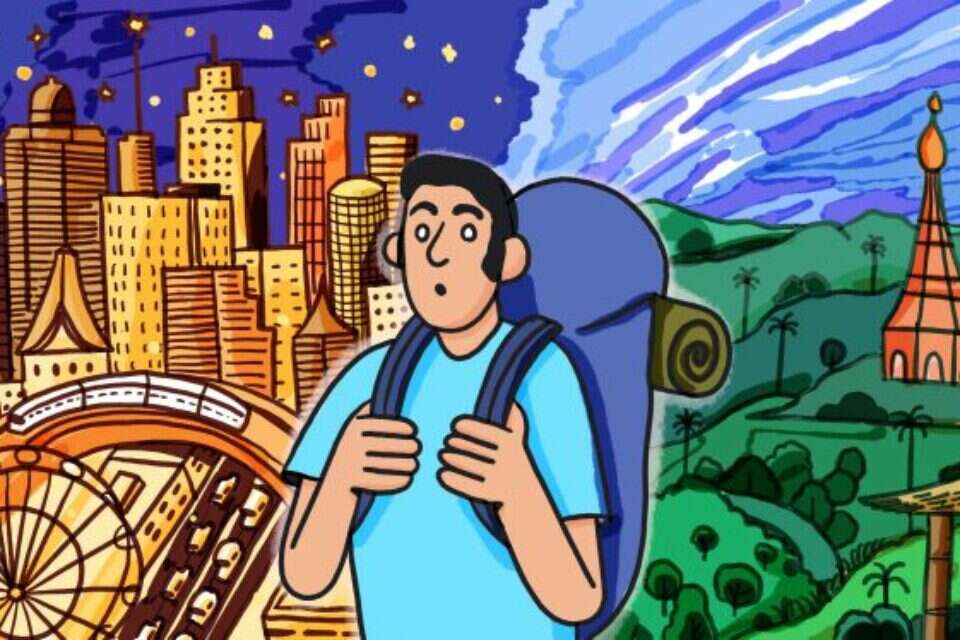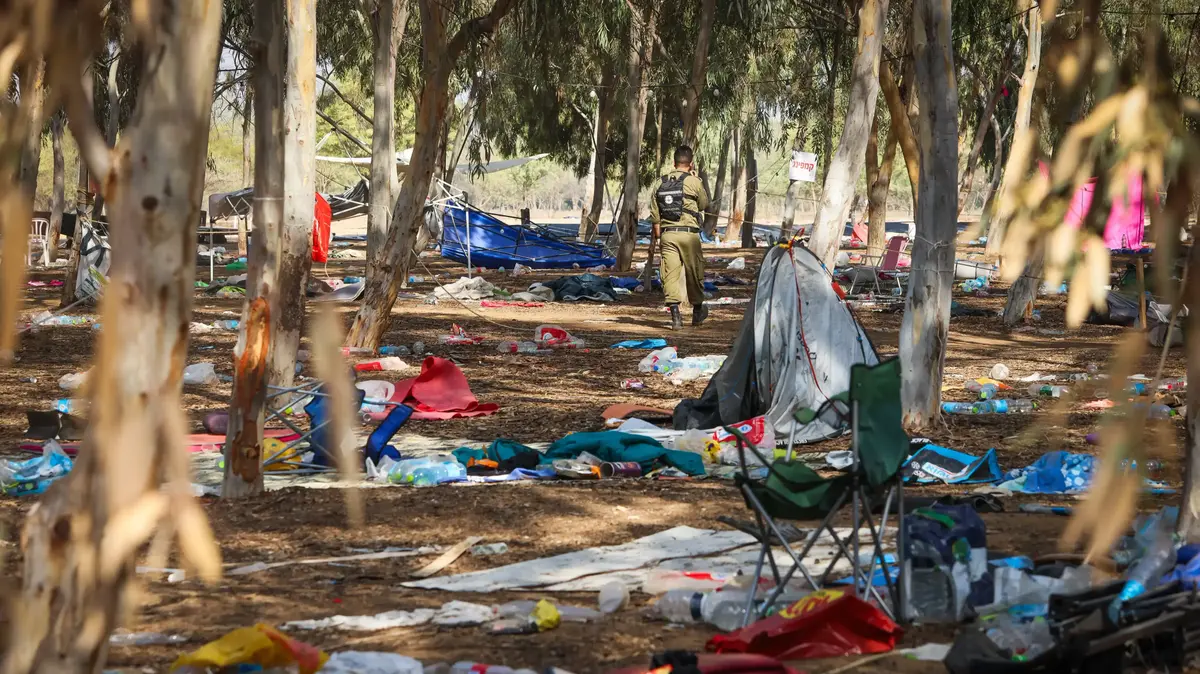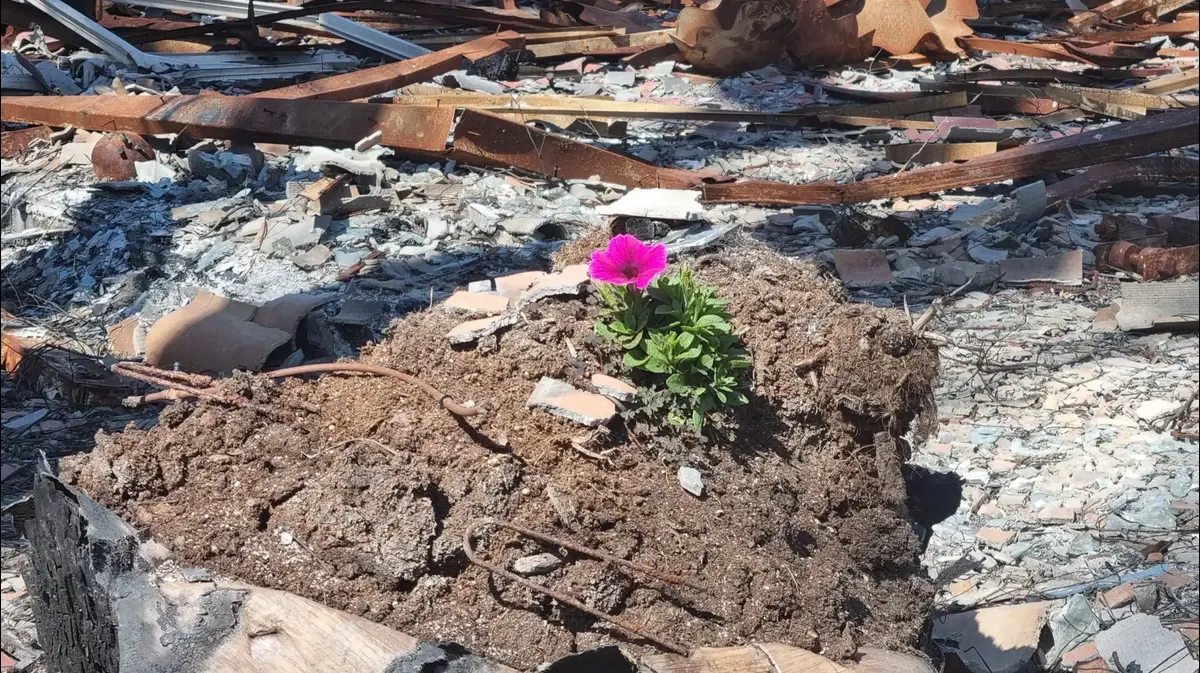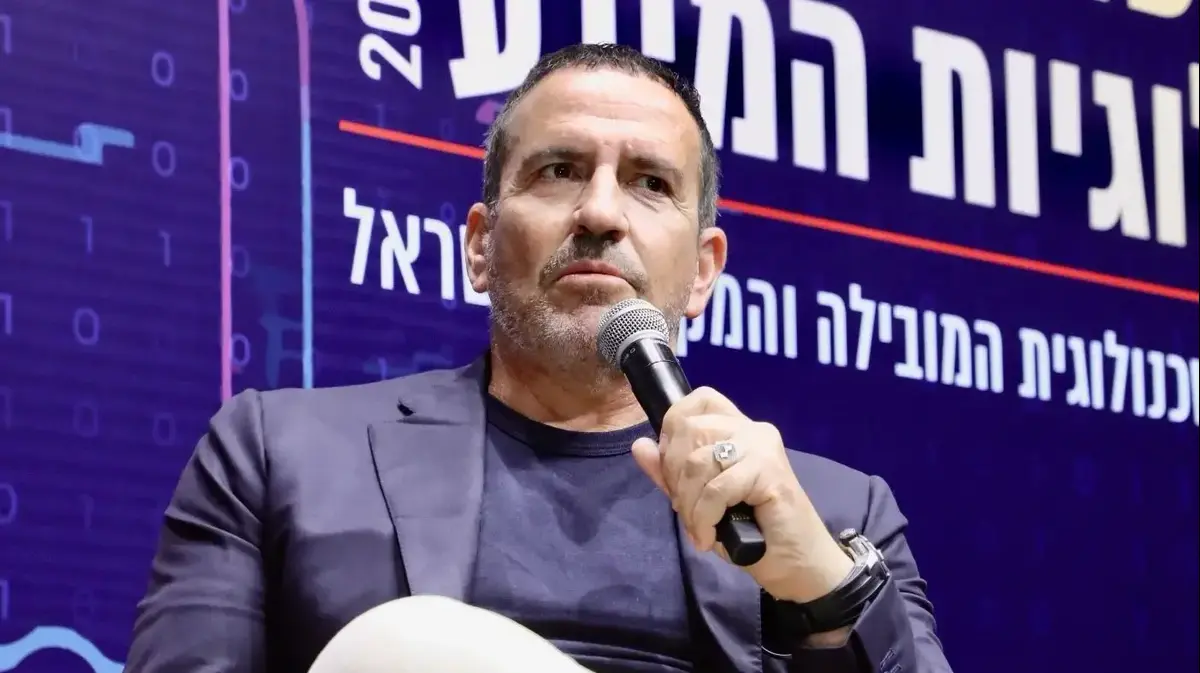The taxi driver who took us to the giant weekend market raved about my eyebrows.
Loudly he was enthusiastic.
"Cowboy!" he cheered, "Chow Bonsu!"
- i.e. Charles Bronson.
no less.
There was a party in a taxi.
The stranger choked with laughter, hinted to me that there would still be time to discuss the Charles Bronson issue.
Hahaha, maximum Boaz Sharabi.
She explained to the children in the back that in the local culture there is a lot of respect for people with facial hair.
Eyebrows like dad's, or cheek wigs.
It brings out of them deep feelings and memories of the Western days.
I remembered that even on the previous trip to Thailand, I could not ignore the cheerful local tendency to look at the face of the stranger and try to remember who the famous person he reminds you of.
The year was 1986, right after the World Cup, I was thin and growing a beard and a mane of hair, and everyone who saw me decided that I must be a Brazilian national team player.
For two months I walked like a celebrity.
I took a picture with everyone who asked, and signed (with my real name!) quite a few bullets.
What am I doing now with Bronson?
In the last nights before the trip to Thailand it was hard to sleep.
I admit that I was as excited and upset as ever, before the annual school trips.
True, the whole family was excited and counted down the days, but the children also knew that Dad was returning to visit the places he loved 36 years ago, on a trip after the army.
How different was it then?
Well, when we packed a big backpack and left three friends for the Far East, we didn't know anyone who had done it before us.
The families reacted as if we had decided to go into outer space.
Like most of the Israelis who in those days paved the hummus paths in South America and Nepal, all of whom we met there, we too had no one to consult with before the trip.
In the days before the wisdom of the cell phone, there was one source of information for backpackers: the "Lamteil" store in Tel Aviv.
There we sat for hours, looking at notes on the bulletin board and scraping basic information about visas and permits and all kinds of exotic vaccinations that must be done.
Besides, we had no idea where we were going and what we would do there.
And we certainly didn't know what this trip would do to us.
We only knew we had to go.
far and wide
After military service, boarding school and our parents' home, we were looking for a place where no one would tell us what to do, where we might understand who we are.
These were the years when the graduates of the First Lebanon War, confused and embarrassed, started cooking up two trends that did something to Israeliness.
One was these backpacking trips, and the other was the rock bands of the 90s.
The first music scene in the country's history that was not dominated by veterans of the military bands or the cultural establishment.
In both there was no place for parents.
Do I need to specifically state that on the 1986 trip we did not meet a single Israeli family?
Over the years, Thailand has become a popular destination for family vacations.
Which is not bad, because we ourselves have become families.
In the age we live in, a lot of things change in 36 years.
I knew I would have trouble identifying quite a few things.
I wondered what would catch me anyway and declare "There! That's exactly how it was".
If there are things I remember very well from that trip, which shook me and changed me inside and out, these are the small human encounters, which nothing prepared us for.
Like that morning when we woke up in a small, mountainous village in northern Thailand.
There were no guesthouses there, let alone luxurious B&Bs.
We were invited to stay with one of the local families.
A tiny bamboo hut on stilts, between which, under our heads, farm animals run.
Chickens and piglets.
In the morning, when we got up to put on tefillin, we discovered that dozens of the villagers were standing in front of us and patiently waiting for us to wrap the strips on their arms as well.
We chuckled a little to ourselves.
We wondered why they even wanted it.
Don't they have enough of their own religion?
And is it even permissible for them?
I mean - what, you don't have an interest in foreign work?
Take off the cap!
***
I admit that there was a basic problem of communication.
Or to be clear - our English wasn't anything either.
But in the end they somehow managed to explain that for them, if I respect a person, I am expected to take part in his world and what is sacred to him.
Another long time passed until I realized that when a Thai woman stands in front of you, bows her head and bows, she is not condescending, but very proud.
Well, things like that, which were not represented in the upright education we received.
And there was the guy who came crying and asked us for a loan.
And we gave it to him.
And he gave back.
Must be the pig.
How hard we tried to convince him that we couldn't take home the giant parrot he gave us as a gift of appreciation.
And the guys we cajoled into teaching us a few cello words every morning.
And the family that asked to learn something from us as well, and to this day is the only one in Chiang Mai that knows how to make shakshuka properly.
And Meir Ariel's line, "Like there we laughed, we didn't cry for years", which accompanied us when we talked at the end of each day about the infinite delicacy that is inherent in this nation, and which it is doubtful that 1,000 trips like this will be able to teach us.
As tourism becomes an industry, such encounters become rarer.
almost impossible.
The visitor is relegated to routes where it is possible to meet only professional service providers.
Maximum attractions, God forbid, and as much as possible, only fruitful interactions.
I was saddened to find that all that remains of some of these mountain villages is a bland souvenir market.
I knew I would meet Thailand differently.
I was so happy to discover that the people who lived there, especially outside the big cities, are still the same noble people, smiling and captivating.
I had a hard time recognizing Chiang Mai.
Bangkok has become a jungle of towers, it is not clear when it had time to be built.
This time I no longer saw families of six people all riding on the same moped.
In the Sunday market of Bangkok - where in 1986 I saw, among the stalls of caramelized insects, someone standing and trying to sell a lion - today mostly imitations of brands are sold.
The local English has improved, and so has the coffee, which on the previous trip made us miss the Camp 80 dining room.
But the nicest people I've ever met still live in Thailand.
Many Israelis we met, of all ages, return to Thailand again and again.
despite the distance.
When we asked for an explanation, we heard words of love.
Mainly for this nation, which is proud - but not too proud.
Believer, but not too religious.
For example, the fact that at the entrance to the market there are dozens of motorcycles, if not hundreds.
The helmets are placed on them.
Nothing is locked.
One day we remembered the play "The King of Siam", which we took the children to see years ago.
From the first moment I couldn't stand what this crooked play was trying to say.
A gentle British lady comes to the Eastern King's palace to teach his children.
Apparently she is supposed to teach them English.
But also sciences.
And basically teach them to be human.
She is British, so she is gentle, sensible and polite.
Thai king.
ie Siamese and Oriental.
That is why he is loud, hot-tempered, boisterous and capricious.
In Thailand, this spectacle is despised, and rightfully so.
Beyond ignorance, it also takes a lot of audacity to ignore the delicacy and tenderness you meet in the land of Siam.
Want an example?
For three weeks we didn't witness a fight, and we didn't hear anyone raise their voice.
Another one?
Every time we asked my local with a question and didn't quite understand the answer, he approached us and repeated his words.
did not raise his voice.
He didn't shrug "what to do".
come closer
That's the whole Torah.
were we wrong
We will fix it!
If you found an error in the article, we would appreciate it if you shared it with us









